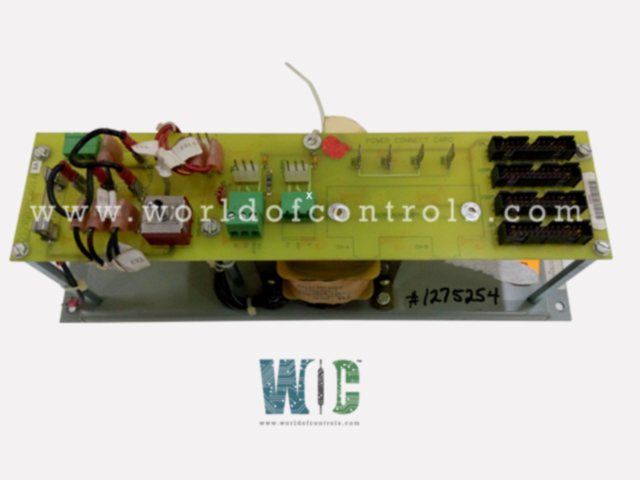Article -> Article Details
| Title | How Digital Signal Processing Cards Are Shaping the Future of Tech |
|---|---|
| Category | Business --> Consumer Goods and Services |
| Meta Keywords | DS200DPCAG1A |
| Owner | World Of Controls |
| Description | |
| In today's rapidly evolving technological landscape, industries are continually seeking ways to improve performance, efficiency, and reliability. One of the most significant innovations enabling these advancements is the development of Digital Signal Processing (DSP) cards. These powerful components are transforming industries across the board, and the turbine sector is no exception. Digital signal processing cards are playing a crucial role in enhancing the performance, monitoring, and maintenance of turbine systems, ushering in a new era of operational efficiency and reliability.
The Role of Digital Signal Processing Cards in the Turbine Industry Digital signal processing cards are essential in managing the large amounts of data generated by turbine systems. Whether in wind turbines, gas turbines, or hydropower plants, these systems rely on real-time data to monitor operations and ensure optimal performance. By processing complex signals efficiently, DSP cards enable engineers to track and analyze a range of parameters, from temperature and vibration to pressure and speed. In the turbine industry, even a small deviation in performance can result in severe consequences, including equipment failure, costly repairs, and downtime. Digital signal processing cards address these challenges by enabling fast, accurate data processing that aids in the early detection of faults and potential issues before they escalate. This proactive approach is vital for ensuring the uninterrupted operation of turbines, especially in mission-critical applications like power generation. Key Benefits of Digital Signal Processing Cards in Turbine Systems
One of the primary advantages of digital signal processing cards is their ability to process vast amounts of data in real-time. Turbines produce continuous data streams from multiple sensors, and DSP cards help handle these signals effectively. This capability allows for immediate analysis and decision-making, enabling engineers to monitor turbine health and performance at all times. With DSP cards, operators can track variables like vibration patterns, temperature fluctuations, and operational speed, which are all indicators of a turbine's health. Timely detection of unusual patterns or trends helps avoid unexpected breakdowns and improves overall system reliability.
A major advantage of integrating DSP cards into turbine control systems is their ability to facilitate predictive maintenance. By analyzing data trends and identifying anomalies in turbine performance, DSP technology can predict potential failures or malfunctions before they happen. This early warning system allows maintenance teams to perform repairs or adjustments proactively, significantly reducing the risk of sudden, costly downtime. Predictive maintenance also extends the lifespan of turbines. By addressing issues before they lead to catastrophic failure, DSP cards help ensure turbines operate efficiently over the long term, providing both cost savings and improved reliability.
Turbines must operate at peak efficiency to ensure maximum power output and energy savings. Digital signal processing cards play a vital role in optimizing performance by adjusting parameters based on real-time data. By processing and analyzing complex signals quickly, DSP cards allow turbines to adjust operating conditions instantly, maximizing energy efficiency. Whether it’s adjusting the load on a wind turbine or managing fuel consumption in gas turbines, DSP cards help to fine-tune operations to deliver the most efficient energy production possible. This improved efficiency translates into reduced operational costs and a lower environmental impact.
Another key benefit of DSP cards is their seamless integration into existing turbine control systems. Modern turbines are often equipped with multiple sensors and monitoring devices, and DSP cards can easily interface with these components. This integration allows for enhanced data collection, real-time feedback, and more accurate decision-making. Rather than requiring a complete overhaul of turbine systems, DSP technology works alongside existing infrastructure to improve performance without disrupting operations. This makes DSP cards a cost-effective solution for upgrading turbine systems without significant downtime or large-scale modifications. Looking to the Future: DSP Technology in the Turbine Industry As the demand for more sustainable and efficient energy solutions grows, the role of digital signal processing cards in the turbine industry will only continue to expand. With advancements in machine learning, AI integration, and data analytics, DSP technology will evolve to provide even more precise control and predictive capabilities. For turbine operators and engineers, embracing DSP technology is essential to staying competitive in an increasingly complex and demanding energy market. As the industry continues to innovate, digital signal processing cards will remain a cornerstone of turbine system optimization, ensuring better performance, lower costs, and a more sustainable future for power generation. | |

